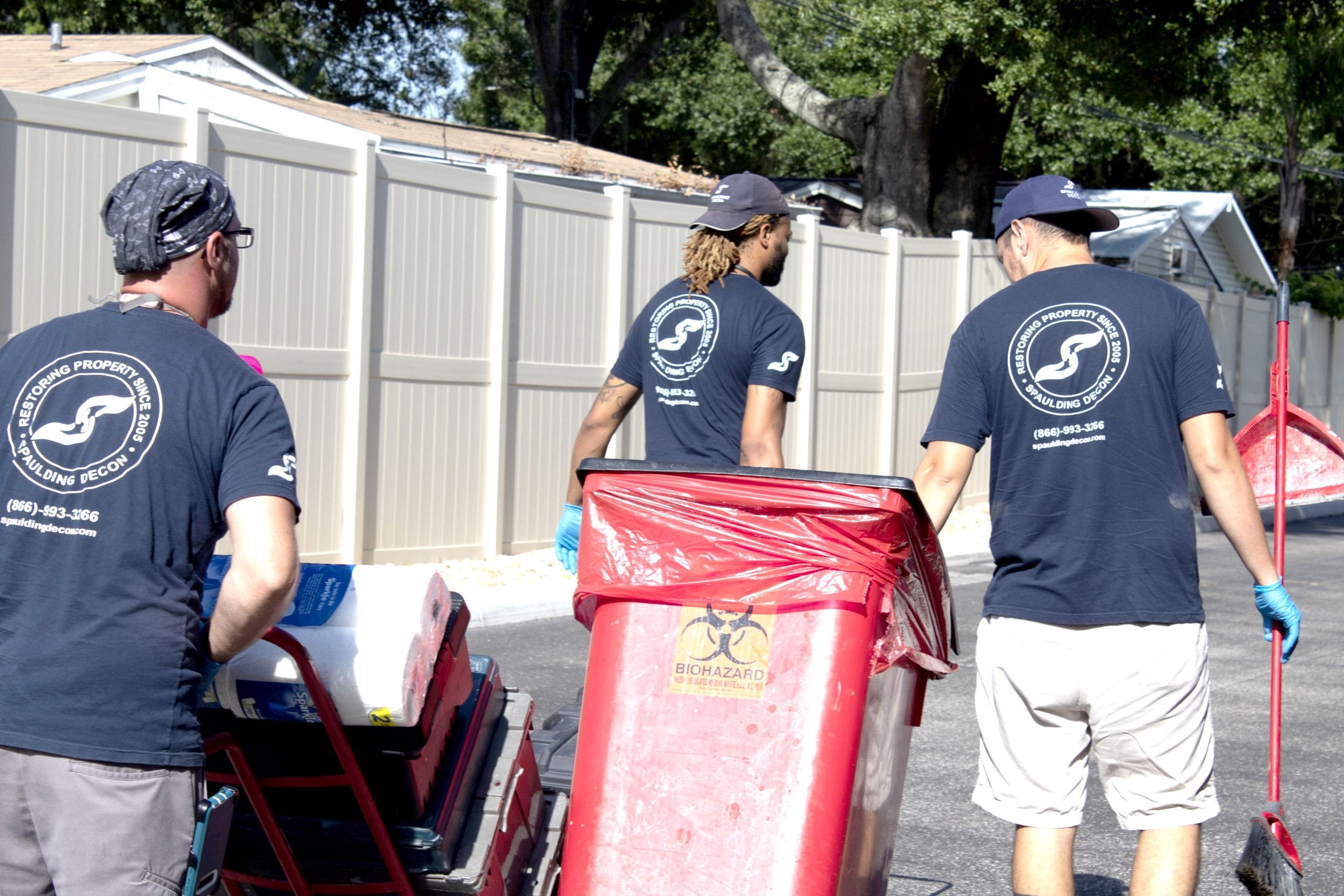Biohazard Remediation
Biohazard remediation is a blanket service term that we use to cover quite a few of our services. Each of these services is generally centered around the cleaning of blood or bodily fluids that have contaminated an area.
Crime Scene Cleanup
When it comes to pricing a crime scene cleanup job we take into account a few factors in each job.
First, did the individual pass away? If yes, how did they pass away? A gunshot suicide will require more cleaning than someone who passed away in their sleep. If no, then what was the situation? If someone was stabbed or shot but lived then it is still a crime with a violent nature with blood and bodily fluid loss.
Second, where did the incident occur? Different locations can pose different challenges for cleaning. Such as the difference between a bathroom vs a bedroom. In a bathroom, there will be primarily tile and it is easier to clean than carpet in a bedroom, which will have to be removed.
Third, how long has the scene been contaminated? The longer bodily fluids are left uncleaned, the more likely it is for fluids to soak through floors and subfloors which creates more area to be cleaned. These questions help us estimate how many technicians and how long they will need to clean up the scene. As well as how many bio bags and boxes that will be required for the disposal of the cleaning supplies at the end of the process.
Blood Cleanup
These jobs can fall underneath crime scene cleaning because of the violent nature associated with some scenes. However, accidents happen, so the questions that we will ask will sound similar, but we need the information to ensure that we are able to provide you the best service possible.
First, what is the situation at hand? We need to know first what we are dealing with so we can help you in the best possible way. Second, where did the incident occur?
Different locations can pose different challenges for cleaning. Such as the difference between a bathroom vs a bedroom. In a bathroom, there will be primarily tile and it is easier to clean than carpet in a bedroom. Third, how long has the scene been contaminated? The longer blood is left uncleaned, the more likely it is to soak through floors and subfloors which creates more area to be cleaned.
General Biohazardous Material Cleanup
While the main biohazard that we clean is bodily fluids, there are other biohazards that we are able to help with outside of that. This can be anything from feces to medical sharps. Many of our questions above will remain the same because we need to get an understanding of the scene to be able to offer the best service that we can.
First, what is the situation at hand? We need to know first what we are dealing with so we can help you in the best possible way.
Second, where did the incident occur? Different locations can pose different challenges for cleaning. Such as the difference between a bathroom vs a bedroom. In a bathroom, there will be primarily tile and it is easier to clean than carpet in a bedroom. Third, how long has the scene been contaminated? The longer the substance is left uncleaned, the more likely it is to soak through floors and subfloors which creates more area to be cleaned.
Homeowners Insurance
Another important thing to consider is the majority of our services will be covered by your homeowners insurance policy. We are happy to work with both you and your insurance company to get any property back to normal. Curious if your situation is covered by your homeowners insurance policy? You can call us at 866-998-0798 and we can walk through the cleanup process with you, so you know exactly what to ask your homeowners insurance provider.





